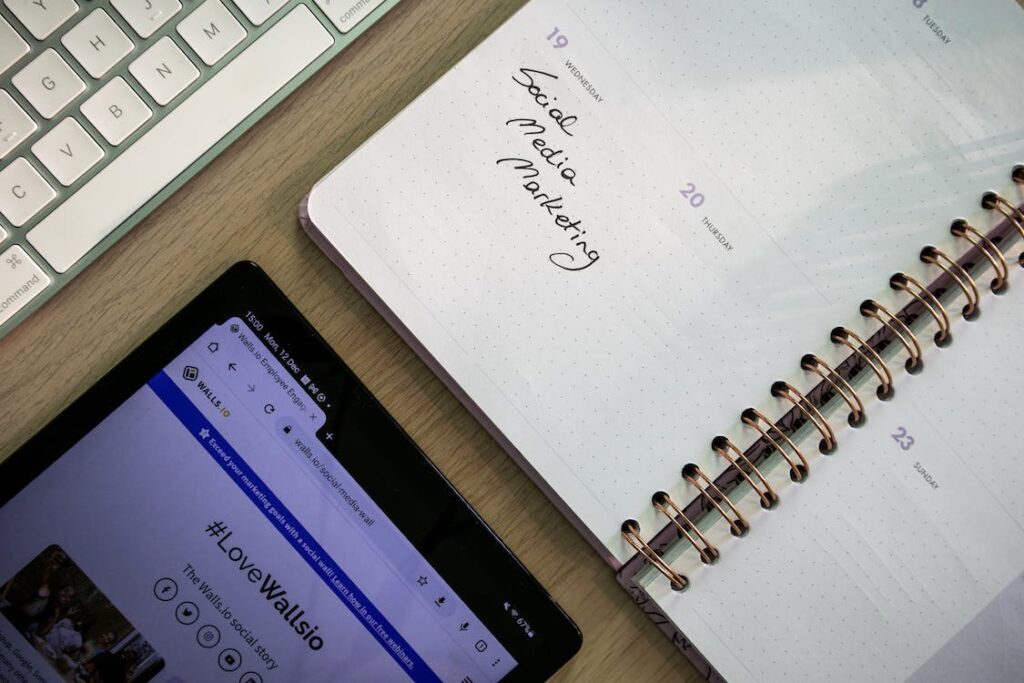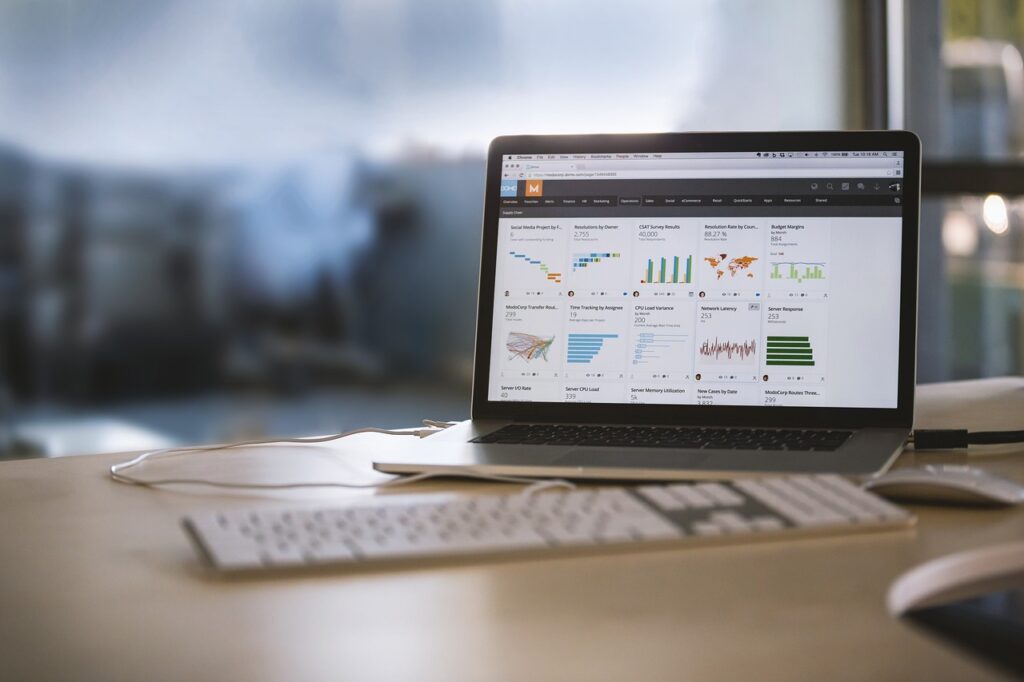In today’s whirlwind of social media activity, finding the right tool to manage your online presence can feel like searching for a needle in a digital haystack. With platforms like Zoho Social and Social Report vying for your attention, each offering a suite of features to streamline your social media strategy, how do you choose the one that fits just right? This article dives deep into the nuances of both platforms, comparing their capabilities, ease of use, and support systems to help you make an informed decision. Let’s embark on this journey together, dissecting each tool to uncover the best social media management companion for your needs.
| Zoho Social | Social Report |
|---|---|
 |  |
| G2 Score – 4.6 out of 5 stars | G2 Score – Nil |
| TrustRadius Score – 9.1 out of 10 | TrustRadius Score – 10.0 out of 10 |
Feature Set: The Heart of the Matter
When it comes to managing your social media presence, the range of features offered by a tool is where the rubber meets the road. Both Zoho Social and Social Report come packed with functionalities designed to simplify your social media management, but they cater to slightly different audiences with unique needs.
Zoho Social: A Symphony of Simplicity and Power
Zoho Social stands out for its user-friendly interface that doesn’t skimp on powerful features. Designed to cater to businesses of all sizes, it offers a seamless experience from scheduling posts to analyzing performance metrics. At its core, Zoho Social focuses on enhancing the user experience, making social media management feel like a breeze rather than a chore.
Scheduling posts with Zoho Social is as intuitive as it gets. With a visual calendar and the ability to schedule posts across multiple platforms, it ensures your social media feeds remain active and engaging. The platform also offers a feature called SmartQ, which suggests the best times to post based on your audience’s activity, maximizing your content’s reach and engagement.
Zoho Social doesn’t just help you post content; it also provides detailed analytics that help you understand how your content is performing. With customizable reports and real-time metrics, it offers insights into engagement rates, follower growth, and more, allowing you to tweak your strategy for better results.
For teams, Zoho Social provides collaboration tools that make it easy to manage social media tasks. From assigning roles to team members to setting up approval workflows, it ensures that your social media management process is smooth and efficient.
Social Report: The Swiss Army Knife of Social Media Tools
Social Report positions itself as a more comprehensive solution, aiming to be the Swiss Army knife for social media professionals. With an emphasis on analytics and automation, it caters to those looking for depth in their social media management tools.
Social Report offers robust scheduling features, including the ability to recycle evergreen content and schedule posts in bulk. This makes it particularly useful for users with a heavy posting schedule, looking to save time while keeping their social media presence vibrant.
Where Social Report shines is in its analytics capabilities. The platform provides deep insights into user behavior, engagement trends, and the overall performance of your social media efforts. It goes beyond basic metrics, offering tools to analyze and understand the ROI of your social media campaigns.
Another area where Social Report excels is in social listening and monitoring. It allows you to track mentions of your brand across social media and the web, giving you the ability to respond to conversations and manage your online reputation effectively.
Making the Choice
Choosing between Zoho Social and Social Report comes down to what you value most in a social media management tool. If simplicity, user experience, and efficient scheduling are your top priorities, Zoho Social might be the perfect fit. On the other hand, if you’re looking for comprehensive analytics, advanced scheduling options, and social listening capabilities, Social Report could be the way to go.
Integration Capabilities: The Digital Ecosystem Connection
In the digital age, the power of a social media management tool is not only measured by its standalone features but also by how well it integrates with other tools and services. This seamless connectivity can transform a good tool into an indispensable part of your digital marketing arsenal. Let’s compare how Zoho Social and Social Report fare when it comes to playing well with others in the vast digital ecosystem.
Zoho Social: Seamless Synchronization
Zoho Social, part of the larger Zoho suite, naturally offers tight integration with other Zoho products, from CRM to Email Marketing, enhancing the synergy between your social media efforts and other business functions. This integration streamlines workflows, making it easier to manage customer relationships, lead generation, and email campaigns alongside your social media strategy.
Beyond the Zoho ecosystem, Zoho Social connects with a variety of popular third-party apps and services. Whether you’re looking to link your social media activities with analytics tools like Google Analytics, collaboration platforms like Slack, or content creation tools like Canva, Zoho Social ensures that your social media management tool is not an island but a well-connected hub within your digital marketing landscape.
Social Report: Broad Horizons of Connectivity
Social Report prides itself on offering a broad spectrum of integrations, understanding that social media management doesn’t operate in a vacuum. Its connectivity extends across various domains, from URL shorteners like Bitly to enhance your posts, to Google Analytics, which provides a deeper understanding of how your social media efforts impact your overall web presence.
One of the standout features of Social Report is its ability to integrate with e-commerce platforms such as Shopify, allowing businesses to directly link their social media campaigns with their online sales activities. This integration is crucial for e-commerce businesses looking to leverage social media for driving sales and engaging with customers.
Moreover, Social Report’s integration capabilities include CRM systems, email marketing platforms, and even customer service software, ensuring that all facets of your customer interaction can be informed by and contribute to your social media strategy.
Weighing Your Options
When it comes to integration capabilities, both Zoho Social and Social Report offer compelling features, but the best choice depends on your specific needs and existing digital infrastructure. Zoho Social is an ideal candidate if you’re already using other Zoho products or you need a tool that integrates well with a wide array of popular services while maintaining an easy-to-use interface. Its seamless synchronization with the Zoho ecosystem can be a deciding factor for businesses looking for an all-in-one solution.
On the other hand, Social Report might be the better choice if you’re seeking extensive connectivity across a diverse range of platforms, especially for e-commerce functionalities. Its broad horizons of connectivity make it a powerful tool for businesses that use a variety of digital tools and services and are looking to centralize their social media management within a more extensive digital marketing strategy.
Choosing the right tool for integration capabilities ultimately boils down to which platforms you currently use, which ones you plan to use, and how important seamless integration is to your overall social media management strategy. Both Zoho Social and Social Report offer pathways to more connected, efficient social media management, but the right path for you will depend on the landscape of your digital ecosystem.
Analytics and Reporting: The Lens Through Which You View Success
In the journey of social media management, the compass that guides you is often the analytics and reporting capabilities of your chosen tool. These features allow you to measure success, understand audience behavior, and refine your strategy based on concrete data. Let’s navigate through the analytics and reporting landscapes of Zoho Social and Social Report to see how they help you chart your course and steer towards your goals.
Zoho Social: Simplified Insights for Strategic Decisions
Zoho Social offers a user-friendly approach to analytics, designed to provide you with clear, actionable insights without overwhelming you with complexity. The platform’s analytics dashboard presents key performance indicators in an intuitive format, making it easy to gauge the health of your social media channels at a glance.
With Zoho Social, tracking engagement metrics such as likes, comments, shares, and follower growth is straightforward. These metrics are crucial for understanding how well your content resonates with your audience and where there might be room for improvement.
The ability to create custom reports is where Zoho Social shines, allowing you to drill down into the data that matters most to you. Whether you’re interested in analyzing the performance of a specific campaign or understanding the best times to post, Zoho Social equips you with the tools to gather the insights you need.
Another valuable feature is competitor analysis, which enables you to benchmark your performance against others in your industry. This perspective is essential for setting realistic goals and identifying opportunities to differentiate your brand on social media.
Social Report: Deep-Dive Analytics for Data-Driven Marketers
Social Report appeals to the data-driven marketer with its comprehensive analytics and reporting features. The platform offers an in-depth look at your social media performance, providing a wealth of data to inform your strategy.
Beyond basic engagement metrics, Social Report delves into advanced metrics like audience demographics, post reach, and the effectiveness of your hashtags. This level of detail is invaluable for marketers looking to optimize their social media presence based on rigorous analysis.
One of the standout features of Social Report is its automated reporting capabilities. The platform can generate detailed reports on a schedule, ensuring you and your stakeholders stay informed about your social media performance without manual effort.
Additionally, Social Report includes social listening tools that track mentions of your brand across social media and the web. This feature allows you to monitor your brand’s reputation, engage with your audience more effectively, and gather insights into public sentiment.
Choosing Your Analytical Companion
Deciding between Zoho Social and Social Report for analytics and reporting boils down to your preferences for simplicity versus depth. Zoho Social is the ideal companion if you value an intuitive interface that provides straightforward insights to inform your strategy. Its user-friendly approach ensures that you can quickly understand your performance and make data-driven decisions without getting bogged down in complexity.
In contrast, Social Report is suited for those who crave detailed analytics and comprehensive reporting capabilities. Its deep-dive approach to data analysis and automated reporting make it a powerful tool for marketers who rely heavily on data to guide their social media strategies.
Both Zoho Social and Social Report offer valuable perspectives on your social media performance, but the right tool for you will depend on how you prefer to interact with your data. Whether you seek simplified insights for quick decisions or comprehensive analytics for a deep understanding, each platform has the potential to illuminate your path to social media success.

Related: Check out our free SEO suite

Pricing Structure: Weighing the Cost Against Features
As we navigate further into the world of social media management tools, understanding the pricing structure of Zoho Social and Social Report becomes crucial. After all, the value a tool offers isn’t just in its features but also in how those features align with the cost. Let’s delve into the financial aspect of these platforms to discern which one might offer the treasure trove of capabilities you seek at a price that matches your budget.
| Zoho Social | Standard Plan: Starting at $10 per month (billed annually) for 1 brand (7 channels) and 2 team members, including basic publishing and monitoring features.Professional Plan: At $30 per month (billed annually), adding more advanced features like the bulk scheduler and custom reports for 1 brand.Premium Plan: Starting at $40 per month (billed annually), for 1 brand with additional features like ad integration and advanced analytics.Agency Plan: At $200 per month (billed annually), managing up to 10 brands, designed for agencies and larger teams.Agency Plus Plan: Starting at $300 per month (billed annually), with the capacity to manage up to 20 brands. |
| Social Report (now known as Traject Social) | Standard Plan: Pricing started around $49 per month, offering full access to all features for small businesses and professional marketers. Advanced Plan: Aimed at larger businesses and agencies, starting around $99 per month, with additional collaboration tools and higher limits. Enterprise solutions: Were available with custom pricing for large organizations needing bespoke features and support. |
Zoho Social: Accessibility Meets Flexibility
Zoho Social is renowned for its straightforward and accessible pricing structure, designed to accommodate the financial constraints of businesses of all sizes. From small startups to larger enterprises, Zoho Social aims to provide a cost-effective solution without compromising on quality or essential features.
Zoho Social’s tiered pricing model allows you to choose a plan that best suits your business’s needs. Starting with a basic free version for individuals or small businesses just dipping their toes into social media waters, it scales up to more comprehensive plans that cater to the needs of growing businesses and agencies. This flexibility ensures that you can upgrade your plan as your social media strategy evolves and your needs become more complex.
One of the strengths of Zoho Social’s pricing is its transparency. Each plan’s costs and included features are clearly laid out, making it easy for you to understand what you’re paying for. This clarity helps in budgeting and ensures there are no unexpected surprises down the line.
Social Report: Comprehensive Tools at a Premium
Social Report positions itself as a more premium option in the social media management tool landscape. It targets businesses and social media professionals looking for a comprehensive suite of tools and advanced features. The pricing reflects the extensive capabilities and advanced analytics it offers.
Social Report’s pricing plans are structured to provide comprehensive coverage of your social media management needs. Even its entry-level plan comes packed with a wide range of features, including social listening, detailed analytics, and automation tools. This makes Social Report an attractive option for businesses that are serious about their social media presence and willing to invest in a tool that can offer deep insights and automation.
Like Zoho Social, Social Report offers scalability, but with a focus on businesses poised for growth or those already operating at a larger scale. Its plans are designed to accommodate the needs of agencies and large organizations, providing them with the tools necessary to manage multiple clients or a vast array of social media accounts efficiently.
Evaluating the Investment
When it comes to choosing between Zoho Social and Social Report based on pricing, the decision hinges on evaluating the cost against the features and the value they bring to your social media strategy. Zoho Social offers an accessible entry point for those with tight budgets or simpler needs, with the flexibility to scale up as required. Its transparent pricing model makes it a safe choice for businesses that need to keep a close eye on expenses.
Social Report, with its premium pricing, is geared towards those who require a comprehensive toolset and are willing to invest more in their social media management platform. Its focus on providing a broad range of advanced features makes it suitable for businesses that need deep insights and extensive capabilities to drive their social media efforts.
Ultimately, the choice between Zoho Social and Social Report should be informed by your specific needs, the size of your operation, and how much you’re willing to invest in social media management. Both platforms offer compelling features, but aligning their costs with your budget and expected ROI will guide you to the right decision.
Collaboration and Workflow: Streamlining Team Dynamics
In the landscape of social media management, the terrain can vary dramatically depending on the size and structure of your team. A tool’s ability to streamline collaboration and workflow is essential for maintaining a smooth and efficient journey. Zoho Social and Social Report offer distinct approaches to team collaboration, each with features designed to enhance how teams work together on social media campaigns. Let’s explore these features to understand how each platform might fit into the fabric of your team’s workflow.
Zoho Social: Enhancing Team Harmony
Zoho Social places a strong emphasis on fostering team harmony and efficiency, with features that encourage seamless collaboration. It understands that in the journey of social media management, every team member plays a critical role, and facilitating their cooperation is key to achieving success.
With Zoho Social, you can assign role-based permissions, ensuring team members have access to the tools and information they need based on their responsibilities. This feature prevents overlap and confusion, making it easier for team members to focus on their areas of expertise without stepping on each other’s toes.
The platform offers shared calendars and collaborative publishing features, allowing for a unified view of social media schedules and content plans. This visibility ensures everyone is on the same page, making it easier to plan, review, and execute social media campaigns as a cohesive unit.
Real-time communication tools within Zoho Social enable team members to provide instant feedback on posts, share ideas, and resolve issues quickly. This level of interaction promotes a dynamic and agile approach to social media management, where decisions can be made swiftly and collaboratively.
Social Report: Empowering Efficient Workflows
Social Report approaches team collaboration with an eye towards empowering efficient workflows. It provides robust tools designed to streamline processes and enhance productivity, especially for teams managing multiple accounts or large volumes of content.
Social Report allows for advanced task assignment and management, giving team leaders the ability to distribute workloads effectively and track progress on assigned tasks. This feature is particularly beneficial for agencies or businesses with complex social media strategies involving numerous campaigns and content streams.
The platform includes workflow automation and approval processes, which can significantly reduce the time and effort required to manage social media activities. Automated workflows ensure that tasks move smoothly from one stage to the next, while approval processes maintain quality control and brand consistency across all published content.
Understanding how your team’s efforts translate into social media success is crucial, and Social Report provides comprehensive analytics that include team performance metrics. These insights allow you to optimize your team’s workflow, identify areas for improvement, and celebrate successes.
Navigating Team Dynamics
Choosing between Zoho Social and Social Report for collaboration and workflow depends on your team’s size, structure, and the complexity of your social media strategy. Zoho Social is ideally suited for teams looking for an intuitive platform that supports collaborative efforts with ease, promoting harmony and efficiency. Its user-friendly features make it accessible for teams of all skill levels, encouraging active participation and cooperation.
On the other hand, Social Report is tailored for teams that require a more structured approach to collaboration, with advanced tools for task management and workflow automation. It’s a fit for larger teams or agencies that handle high-volume content and complex social media campaigns, where streamlining workflow and maintaining strict control over the publishing process are paramount.
Both platforms offer valuable tools for enhancing team collaboration and workflow, but the right choice will align with your team’s operational needs and the strategic goals of your social media campaigns.
Social Media Platform Coverage: Expanding Your Reach
In the digital voyage of social media management, the breadth of platform coverage can significantly impact your ability to reach and engage with your audience. With the digital landscape constantly evolving, the tools you choose must be capable of navigating a wide array of social media platforms. Zoho Social and Social Report each offer their map of supported networks, but the territories they cover and how they manage them can vary. Let’s explore the platform coverage of Zoho Social and Social Report to see how they help you expand your digital reach.
Zoho Social: Covering Core Territories
Zoho Social focuses on providing robust support for the core social media platforms most businesses rely on. This approach ensures that you can effectively manage your presence on the networks where the majority of your audience spends their time.
Zoho Social’s coverage includes major platforms such as Facebook, Twitter, LinkedIn, Instagram, and Google My Business. By concentrating on these essential networks, Zoho Social ensures that you can maintain a comprehensive and cohesive social media strategy that reaches your audience where they are most active.
The unified dashboard feature in Zoho Social allows you to manage all your social media activities from a single interface. This centralized approach simplifies the process of scheduling posts, responding to messages, and monitoring engagement across different platforms, ensuring you don’t miss a beat in your social media efforts.
Social Report: Charting a Broader Course
Social Report sets its sights on a broader horizon, offering support for a wider range of social media platforms. This extensive coverage is designed for businesses and agencies looking to cast a wider net in their social media strategy.
Beyond the primary platforms, Social Report also covers networks like Pinterest, Tumblr, and even YouTube, providing a more comprehensive suite of options for your social media campaigns. This broader coverage is particularly beneficial for brands and businesses aiming to reach niche audiences or leverage specific platforms for unique marketing objectives.
Social Report not only supports a wider range of platforms but also offers platform-specific features that optimize your content for each network. Whether it’s Pinterest’s pin scheduling or YouTube’s video analytics, Social Report equips you with the tools necessary to tailor your strategy to the unique characteristics and audience behaviors of each platform.
Setting Sail Across Digital Waters
When deciding between Zoho Social and Social Report based on social media platform coverage, consider the scope of your digital marketing strategy and where your audience is most engaged. Zoho Social offers a streamlined and focused approach, ideal for businesses that concentrate their efforts on the major social networks. Its unified dashboard and core platform support ensure that managing your social media presence is both efficient and effective.
In contrast, Social Report invites you to chart a broader course, with its extensive platform coverage and platform-specific features. This approach suits businesses and agencies looking to explore beyond the mainstays of social media, reaching into niche markets or employing a more diversified social media strategy.
The choice between Zoho Social and Social Report ultimately hinges on your strategic priorities and the breadth of audience engagement you seek. Whether you prefer to navigate the well-trodden paths of the major platforms or explore the wider digital landscape, both tools offer distinct advantages to guide your social media journey.
Conclusion
Choosing between Zoho Social and Social Report hinges on aligning each platform’s strengths with your social media strategy’s specific needs. Zoho Social offers an intuitive, streamlined experience perfect for those focusing on the major social networks, emphasizing ease of use, efficient collaboration, and cost-effectiveness. It’s suited for businesses looking for a straightforward tool that simplifies social media management while providing powerful analytics and reporting capabilities.
On the other hand, Social Report appeals to those requiring extensive platform coverage and advanced features, from deep-dive analytics to comprehensive social listening tools, making it ideal for agencies or businesses with diverse or niche platform needs. The decision ultimately rests on what aspects of social media management you prioritize—whether it’s broad platform support and advanced functionality with Social Report or user-friendly design and core platform focus with Zoho Social. Each tool offers a path to enhanced social media engagement and strategic insight, but the right choice will depend on the unique contours of your digital marketing landscape.
Read next
- 31+ Top Social Media Management tools Compared! (2023)
- SEO for Culinary Tourism: A Guide
- SEO for Business Hotels: Targeting the Corporate Traveler
- How to Utilize Facebook Lead Generation Ads: A Deep Dive
- 17 Best Human Resource Management Software: What Should You Get?






















Comments are closed.